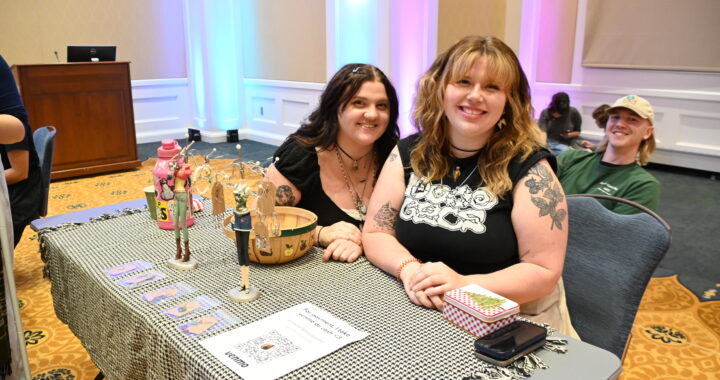Students reflect on course changes in spring course list
3 min read
Lucas Burkholder | The Blue and Gray Press
By SEIRRA HORTON
Staff Writer
Since the course offerings for the spring of 2019 were released two weeks ago, students have begun poring over the list to plan and balance their schedules for the next semester.
“When I first saw the courses I was really excited, mainly because there is such a variety of classes that can be taken across the board,” said sophomore Emily Barbery. “Being a biology major and seeing all the fun courses I have lined up for the future is very exciting.”
Compared to past course lists, there are a few changes in the courses being offered and the professors that are teaching them. Among these changes, there are approximately 45 new courses across many departments, according to Evie Sherlock from the Registrar’s Office.
“One of my colleagues, Dr. Ben Kisila, usually teaches a soil science course in the spring, but he has a sabbatical this spring semester to pursue some exciting research full time,” said earth and environmental science professor Dr. Melanie Szulczewski. She noted that Kisila will resume teaching the course next spring.
“I have noticed that a lot of the seminars change based on what the professors want to teach, which is always really cool to see,” Barbery said. “I think the professors being given the freedom to choose what they want to makes it more engaging for students. As a future teacher I love seeing other educators being able to teach things they are passionate about, and this makes it more engaging for the students this way they can fall in love with the subject themselves.”
The most important factor to consider when looking at the course schedule for each student is ensuring that they are on the right path to fulfilling the requirements for their major. Some students are concerned about a lack of course options pertinent to their course of study.
“I have noticed that there aren’t many religion classes being offered in the spring, even though I need to take some to fulfill my general education requirements,” said sophomore and business administration major Josh Duke.
That said, many students are pleased with the array of courses available.
“I feel like there are plenty of course options offered for my major; however, the only thing I see that could potentially become a problem is that there are a lot of classes that are exclusively offered in the spring or fall,” Barbery said. “For people that choose to change their major, this can sometimes become a hindrance to graduating on time.”
“Timewise, I think getting into many of the general education classes is hard, but, for my major, I think getting into the courses I need won’t be an issue,” said Duke.
Professors have a unique perspective on the course lists. “Our department tries to offer every class in the catalogue at least once a year. Some years we can’t do that because of faculty being on leave,” explained psychology professor Dr. Holly Schiffrin. “For example, I don’t think we offered health psychology this year.”
Schiffrin also discussed how the psychology department chooses the courses they offer each semester. “We have a committee of faculty who meet to determine the schedule, but the department chair has the final say. We typically build the schedule around our core classes and we also need to offer a fair number of general psych sections each year as well as a few FSEMS to help students fulfill general education requirements. After that, we fill in classes from the four primary content areas identified by the APA. Finally, we add elective classes based on faculty availability.”
Even professors are filled with excitement as they look at the list of courses being offered in the spring.
“I’m most excited about the relatively new elective of Positive Psychology that I added to the curriculum a few years ago,” said Schiffrin.
“I am looking forward to teaching EESC 325 Environmental Geochemistry this spring,” said Szulczewski, “It is usually offered every other year, so that I can offer a study abroad or field course in alternate years. I enjoy teaching this course because I get to share my love for chemistry in a way that makes it more approachable for students. We focus on chemistry concepts that directly apply to the environment around us. I include field trips to a contaminated stream, a wastewater treatment plant, or even a local landfill.”


